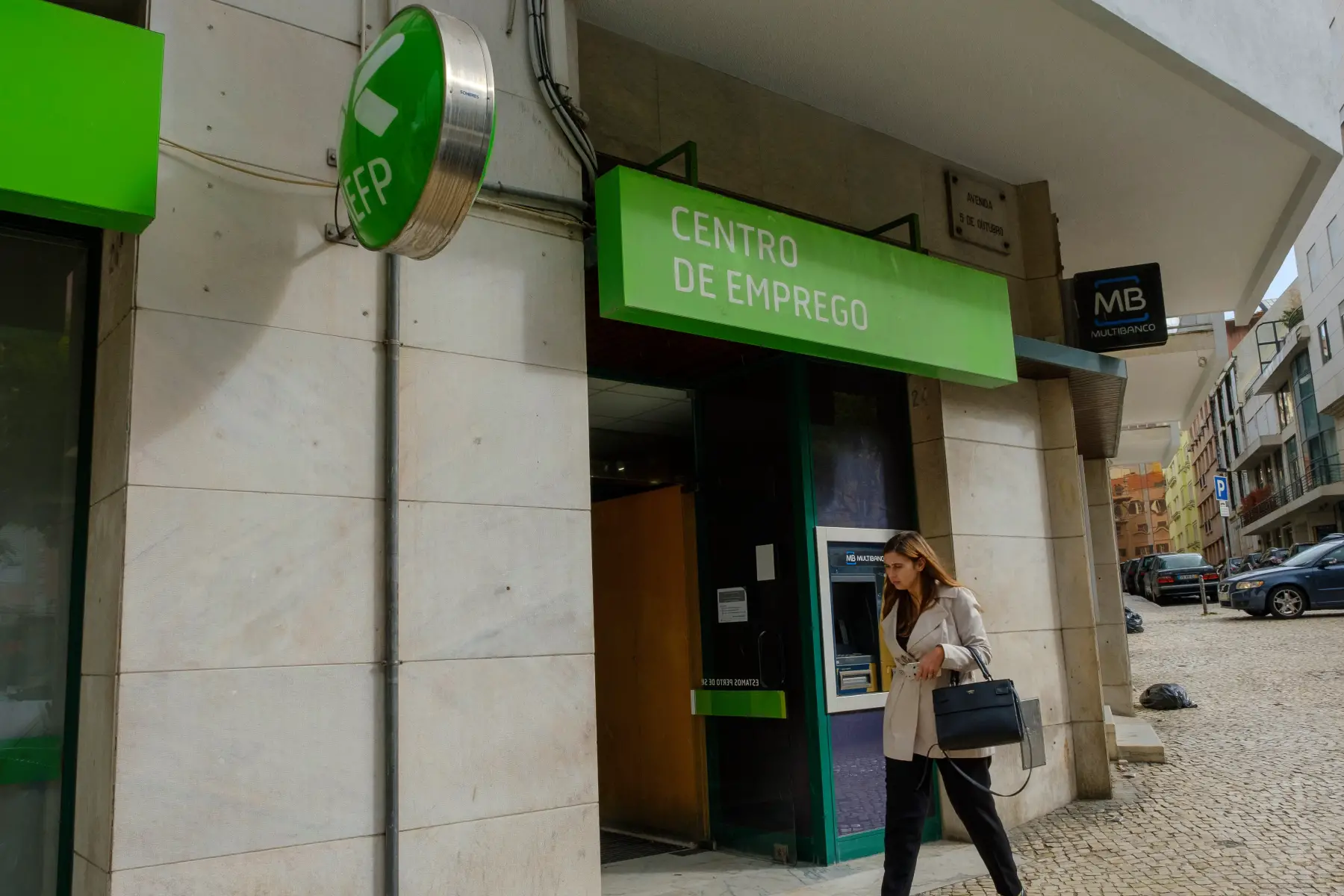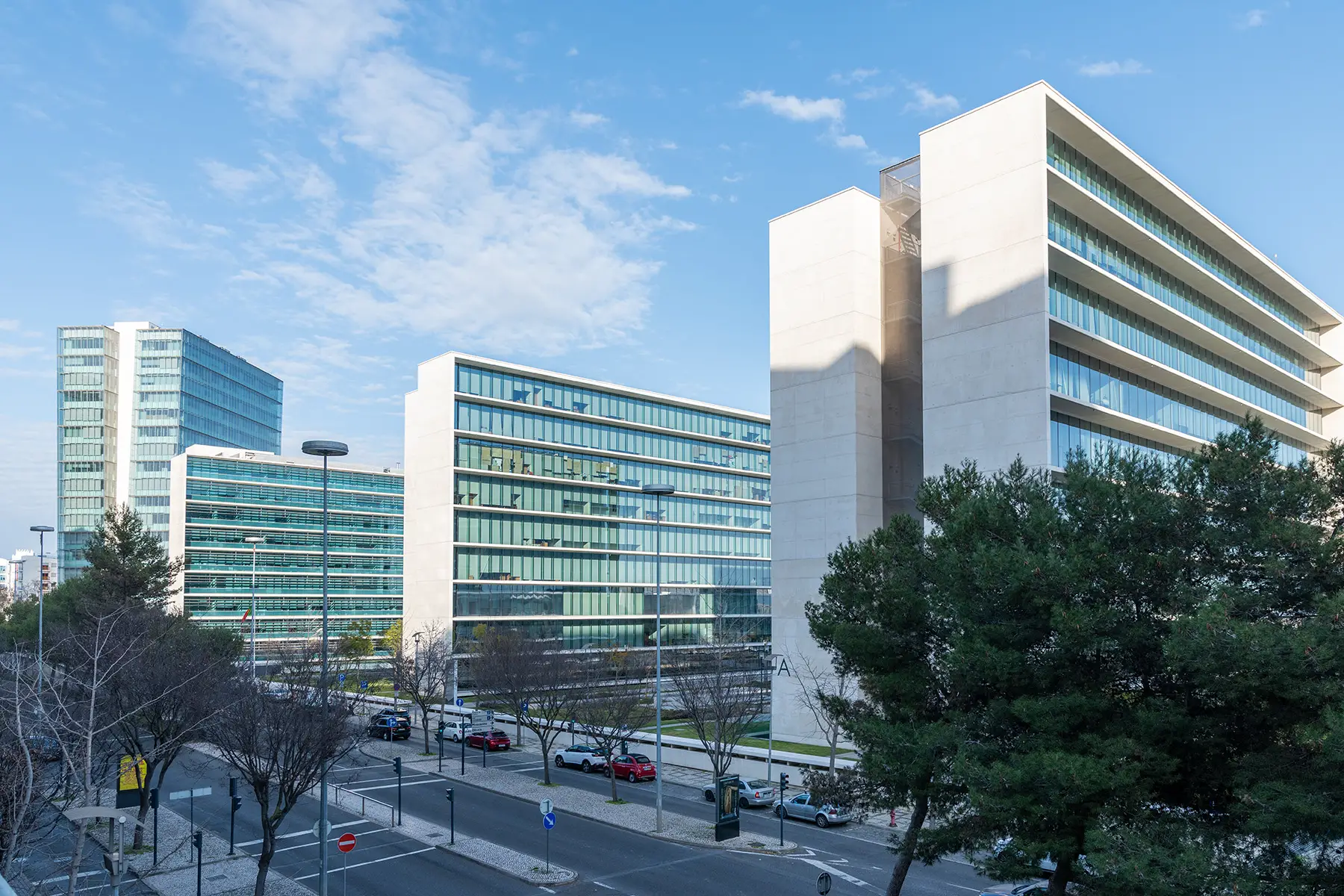If you’re moving to Portugal, it’s important to understand the rules surrounding social security contributions and the protections you could be eligible for. Find out more about social security in Portugal, including advice on the following:
- Social security in Portugal
- Receiving social security in Portugal
- Unemployment benefit in Portugal
- Sickness benefits in Portugal
- Maternity benefits in Portugal
- Child benefits in Portugal
- Survivor benefit in Portugal
- Health insurance in Portugal
- Social security in Portugal for self-employed and freelancers
- Useful resources
Anchorless
Get your new life off to the right start with Anchorless. Their online service helps internationals get an NIF (tax ID) in Portugal, and their expert team will help you set up a bank account and register with the tax authorities. Let Anchorless handle the admin for you so you can enjoy your new life in Portugal.
Social security in Portugal
Social security (Segurança Social) in Portugal provides support and welfare benefits for residents. The system has three strands:
- The welfare (Previdencial) system provides financial support to workers who lose their employment income.
- The solidarity (Solidariedade) system aims to guarantee citizenship rights and eradicate poverty.
- The family support (Protecção Familiar) system provides assistance and allowances for families, particularly in cases of disability or dependency.
Who is eligible for social security in Portugal?
The Portuguese social security system is available to both Portuguese and foreign citizens who make contributions. To work and make social security contributions, you’ll need to have a Social Security Identification Number (NISS). If you have a Portuguese citizen’s card, your NISS should be on the back. However, some foreign nationals need to apply for a NISS through the Portuguese public services portal (o seu portal de servicos publicos).
Alternatively, certain online services, like Anchorless or e-residence, can help you apply for your NISS without being physically present in the country.
Employees and employers both make social security contributions. Employees contribute 11% of their salary, while their employer contributes 22.3–34.75%. Employee contributions cover family, pension, and unemployment benefits, while employers also pay a premium to cover insurance for occupational accidents. Self-employed contributions are higher.
Workers in Portugal have their contributions deducted directly from their salary. Self-employed workers need to make contributions themselves, unless they have an exemption.
Receiving social security in Portugal
The Portuguese social security system offers protections to all residents of Portugal. If you’re not in employment in Portugal, you may qualify for protection under your home country’s social security system, as long as it has a social security agreement in place with Portugal.
Portugal has social security agreements with all EU countries and a range of non-EU countries such as the United States and Australia. Some bilateral agreements allow you to transfer or combine social security benefits. Periods of insurance, work, and taxation in your home country can also count towards your entitlements. The EU’s agreement ensures residents only make social security contributions in one country, allowing them to avoid double taxation.
Portugal has agreements in place with the following countries:
- Andorra
- Argentina
- Australia
- Bolivia
- Brazil
- Cabo Verde
- Canada
- Chile
- Ecuador
- El Salvador
- Iceland
- India
- Liechtenstein
- Morocco
- Moldova
- Mozambique
- Norway
- Paraguay
- Peru
- Philippines
- Switzerland
- Tunisia
- Türkiye
- Ukraine
- United Kingdom
- United States of America
- Uruguay
- Venezuela
If your country doesn’t have a bilateral agreement with Portugal, you might need to make social security contributions in both countries. If you’re unsure, seek advice on your position from your country’s embassy in Portugal. Embassy Pages provides addresses and contact details.
Unemployment benefit in Portugal
There are four types of unemployment benefit in Portugal:
- Unemployment benefit (subsídio de desemprego): for workers who have lost their job, have come to the end of an employment contract, or have ceased work involuntarily.
- Social unemployment benefit (subsídio social de desemprego): for workers who do not meet the conditions for unemployment benefit or whose benefits have run out.
- Partial unemployment benefit (subsídio de desemprego parcial): for workers who were receiving unemployment benefit but have now started part-time or self-employed work.
- Allowances for cessation of work for self-employed workers (subsídios por cessação de atividade para trabalhadores independentes): for some self-employed workers who have lost their main income source or closed their business (subject to justifiable reasons).
Who can get unemployment benefit in Portugal?
Unemployment benefit
To be eligible for unemployment benefit, you must fulfill a series of criteria. You must reside in Portugal, be involuntarily unemployed, be registered as a job-seeker, and have worked for at least 360 days in the 24 months immediately before you became unemployed. To register as a job seeker, you must sign up with the Portuguese job center (Instituto do Emprego e Formação Profissional – IEFP).

Days worked in EU states, Iceland, Norway, Lichtenstein, Switzerland, and countries with social security agreements with Portugal can be counted towards the above figure.
Social unemployment benefit
You must have already exhausted your entitlement to employment benefits to qualify for social unemployment benefit. In addition, you’ll need to have worked for 180 days in the 12 months before becoming unemployed (or 120 days in some cases).
You must not own movable assets worth more than €106,368 or have income above 80% of the social support index (the exact rules can vary, so seek advice specific to your situation).
Partial unemployment benefit
To gain partial unemployment benefit, you must have claimed or already be receiving unemployment benefits. In addition, you must be working (or about to begin working) in a part-time job or self-employed role with earnings lower than the unemployment benefit amount.
Self-employed workers must have worked 360 days in the last 24 months (or 720 days within the last 48 months) to qualify.
Unemployment benefit amounts and how to claim
The period for which you’re entitled to unemployment benefits depends on how long you were in paid work before becoming unemployed.
There are many permutations. For example, someone aged 30–39 with more than 24 months between their two most recent periods of unemployment is entitled to unemployment benefit for up to 420 days. An equivalent worker aged over 50 is entitled to 540 days of benefits. You can learn more about the specific calculations on the European Commission’s website.
Unemployment benefit is usually paid at 65% of registered earnings. The minimum monthly rate is €439, and the maximum is €1,097. Benefit amounts can be increased by 25% if both spouses receive benefits and have dependent children, or if the claimant is a single parent.
To apply, you’ll need to fill out form RP5044, which you can download from the Social Security department’s website. Migrant workers must also fill out Form U1 to certify their EU benefits.
Sickness benefits in Portugal
Employees and self-employed people can claim sickness benefits in Portugal (subsídio de doença). To be eligible, you must have been working for at least six months (either consecutive or overall) before the date the sickness started. You’ll also need to have been working for at least 12 days in the four months immediately before you became ill.
If you’re self-employed, you’ll need to have paid your social security contributions for the three months directly before the period of sickness began.
Sickness benefits are paid from the fourth day of incapacity for employees, or the 11th day of incapacity for self-employed workers. Overall, the maximum benefit is as follows:
- First 30 days of sickness: 55% of income
- Day 31–90: 60% of income
- Day 91–365: 70% of income
- Over 365 days: 75% of income
The minimum sickness benefit is 30% of the Portuguese social security wage. In 2022, this amounts to €131.64.
Maternity benefits in Portugal
Social security in Portugal includes maternity benefits. To qualify, expectant mothers must have paid social security contributions for at least six months, either consecutively or aggregated. Contributions must have been made for the quarter of the year immediately before the maternity leave is due to begin.
Mothers are entitled to a maximum of 30 days’ of voluntary leave before childbirth, followed by 42 days’ of compulsory leave after the birth. Fathers qualify for a maximum of 20 days’ leave, with five taken immediately after the birth and the other fifteen within the following six weeks.

Mothers qualify for initial parent benefit for 120–150 days. However, an extension of 30 days is provided if the parents take shared leave or in the case of multiple births. All in all, 100% of income is usually paid for the first 120 days, followed by 80% for the next 30 days.
Further social benefits are available to mothers with assets worth less than 240 times the social support index (€105,314.40 in 2022) and monthly earnings below 80% of the index (€351.05).
Child benefits in Portugal
Family benefits for children and young people (abono de família para crianças e jovens) are available to some families in Portugal. Benefits are payable if the family has assets worth less than €105,314.40 and earns below certain thresholds.
Benefits are available for children up to the age of 16. However, for children aged 16–24, the benefit is only payable if the child remains in further education or if the child has a disability.
The amount provided per child depends on household earnings and the child’s age. Benefits vary considerably: if the parent is in the fourth income bracket and has a child aged between three and six years old, the benefit is only €19.46 a month in 2022, but if they are in the first income bracket and have a child aged three or under, the benefit amount is €149.85.
The Portuguese Social Security department provides specific details of the eligibility rules and current payment amounts.
Survivor benefit in Portugal
Residents of Portugal may be able to claim benefits in the event of a spouse or parent’s death. Benefits include Survivor’s Pension (pensão de sobrevivência) and Widow/Widower’s and Orphan’s Pension (pensão de viuvez e orfandade).
To be eligible for a survivor’s pension, the beneficiary must have been earning and making social security contributions for at least 36 months. Generally, eligibility for this pension and payment amounts depend on your income and relationship to the deceased. For example, spouses can claim up to 70% of the expected pension, while descendants can claim between 20% and 40%.
A lump sum death grant (subsídio por morte) is also payable. The rate in 2022 is €1,316.43.
Health insurance in Portugal
Any resident can use the Portuguese healthcare system, regardless of their country of origin. To summarize, the national healthcare system (Serviço Nacional de Saúde) covers a percentage of the costs of visiting the doctor, having treatment in hospital, and medical emergencies.
Once you’ve registered with the Portuguese social security system, you should be able to access services through the national healthcare system. You’ll then need to visit your local health center with your social security card to be assigned a doctor.
Some expats choose to take out optional private health insurance in Portugal to supplement the services provided by the national system. Generally, private healthcare is provided by individual insurers and typically offers shorter waiting times and better facilities.
Social security in Portugal for self-employed and freelancers
Social security contributions for self-employed workers in Portugal are different from those for people in employment. Generally speaking, self-employed workers in Portugal pay social security contributions at a rate of 21.4%.
Some self-employed workers are exempt from making social security contributions. If your average monthly income (over a quarter of the year) is less than four times the value of the social wage, you may be granted an exemption. Other, more specific exemptions are available, such as for invalidity or pensioners. You can find out more about the rules and how to apply for an exemption on the Portuguese public services portal.
Self-employed workers provide quarterly declarations of their income in January, April, July, and October. You must pay any social security contributions between the 10th and 20th of the month. The Social Security Authority (Segurança Social) provides further information.






